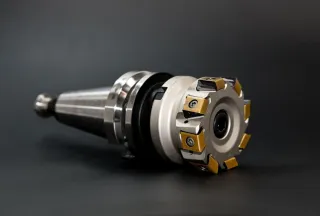Why Hiring Machine Operators Is So Challenging Right Now
The labor market for machine operators is squeezed from multiple sides:
-
Aging Workforce: Many skilled operators are retiring, creating a knowledge gap.
-
Skills Shortage: Advances in automation and CNC technology require technical skills that many candidates lack.
-
Competition: Other industries, like construction and logistics, also seek candidates with similar mechanical aptitudes.
-
Changing Expectations: Today’s workers seek more than just a paycheck; they want career growth, flexibility, and supportive cultures.
According to a 2023 Deloitte report, the U.S. manufacturing industry could face a shortage of over 2 million skilled workers by 2030. Without skilled operators, production slows, costs rise, and quality drops.
Step-by-Step Guide to Hiring Skilled Machine Operators
1. Define the Role Clearly
Before you can attract the right candidates, you need a detailed job description. Go beyond general titles like “Machine Operator” and specify:
-
Types of machines operated (e.g., CNC milling, lathes, injection molding)
-
Required certifications (e.g., OSHA safety certification)
-
Necessary skills (e.g., blueprint reading, mechanical troubleshooting)
-
Physical requirements (e.g., ability to lift 50 pounds)
A precise job description filters unqualified candidates early.
2. Offer Competitive Compensation and Benefits
In a tight market, salary matters. Benchmark your wages against industry standards in your region. Sites like Glassdoor and PayScale provide real-time salary insights.
Don’t just compete on pay. Offer:
-
Overtime opportunities
-
Health and dental insurance
-
401(k) matching
-
Paid training and certifications
-
Career advancement paths
Top operators often move for better pay and professional development, not just a new machine to run.
3. Use Targeted Sourcing Channels
Traditional job boards like Indeed work but may not be enough. Also consider:
-
Trade Schools: Partner with local technical colleges.
-
Veterans: Military veterans often have mechanical skills and discipline ideal for manufacturing.
-
Industry-Specific Platforms: Sites like FactoryFix specialize in connecting manufacturers with technical talent.
-
Employee Referrals: Incentivize your current team to refer skilled friends or former colleagues.
4. Streamline Your Hiring Process
Skilled machine operators are in demand. A slow, cumbersome hiring process can cost you top candidates. Improve your process by:
-
Pre-scheduling interviews with hiring managers
-
Using phone screenings to quickly filter candidates
-
Offering same-day or next-day interview slots
-
Making quick but informed hiring decisions
Software platforms like Workable or Breezy HR can help automate parts of this process.
5. Evaluate Skills Through Practical Tests
Resumes only tell part of the story. Include hands-on assessments:
-
Blueprint reading exercises
-
Simulated machine setup
-
Safety protocol drills
Some companies even run “working interviews,” where candidates operate a machine under supervision for a few hours. This approach ensures the candidate can walk the talk.
6. Highlight Career Growth Opportunities
Machine operators today want more than repetitive tasks. Show them:
-
Training programs for CNC programming or robotics
-
Opportunities to become team leads or shift supervisors
-
Tuition assistance for advanced certifications
A clear career ladder makes your company more attractive compared to competitors offering “just a job.”
7. Improve Workplace Culture
Operators want safe, supportive, and respectful work environments. Invest in:
-
Regular safety training
-
Team-building activities
-
Clear communication channels between operators and leadership
-
Recognition programs for high-performing employees
A great workplace culture isn’t just about retention; it also makes recruitment easier through word-of-mouth referrals.
8. Embrace Technology in Recruitment
AI and data analytics can speed up candidate sourcing and screening. Platforms like HireEZ use AI to find passive candidates who aren’t actively job-hunting but are open to opportunities.
Implementing chatbots like Paradox can handle initial candidate questions, schedule interviews, and keep applicants engaged, ensuring your best prospects don’t slip away.
Overcoming Common Hiring Challenges
-
Low Application Volume: Expand sourcing channels, offer sign-on bonuses, and run targeted ads highlighting your unique benefits.
-
Skills Mismatch: Focus on transferable skills and provide on-the-job training.
-
High Turnover: Improve onboarding, mentorship, and career development support.
-
Budget Constraints: Prioritize hiring for critical roles first and automate lower-level tasks where possible.
The Bottom Line
Hiring skilled machine operators in a tight labor market isn’t impossible; it just requires more strategy, more speed, and more expertise. By offering competitive packages, speeding up hiring processes, expanding sourcing methods, and focusing on career growth, you can build a reliable team that keeps your production lines running smoothly.
Partnering with experts like Talent Traction gives you an even greater edge, combining advanced sourcing technology, manufacturing sector expertise, and a human touch that ensures you land the best machine operators available.
FAQs
How much should I pay a skilled machine operator?
Wages vary by region and machine type but typically range from $18 to $30 per hour. Research local benchmarks using platforms like PayScale or Glassdoor.
Where can I find skilled machine operator candidates?
Top sources include trade schools, veteran job boards, industry-specific sites like FactoryFix, and employee referrals. AI-powered platforms like HireEZ can also uncover passive candidates.
What skills should I look for in a machine operator?
Key skills include machine setup, blueprint reading, mechanical troubleshooting, knowledge of safety protocols, and CNC programming for more advanced roles.
How can I reduce turnover among machine operators?
Offer clear career paths, regular recognition, ongoing training, competitive compensation, and foster a strong, supportive workplace culture.
Should I use AI in my hiring process?
Yes! AI can streamline resume screening, source candidates faster, and improve communication through chatbots, freeing up human recruiters to focus on final interviews and onboarding.
What if a candidate lacks some of the required skills?
If they have strong mechanical aptitude and transferable skills, consider offering paid training to close the gap. Investing in high-potential candidates can yield long-term loyalty and productivity.




